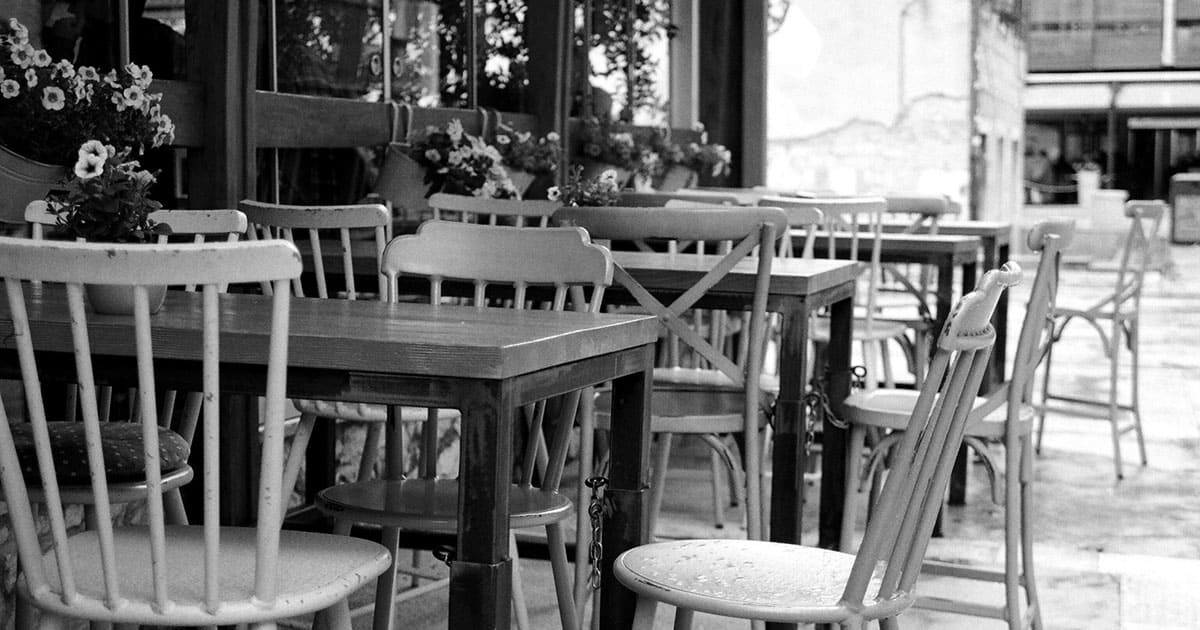
The paradox of outdoor dining and car parking
Share
Posted December 8, 2020
Business Strategy, Tourism & Events, Town Planning
When does outdoor dining trigger, or when should it trigger, requirements for additional car parking?
Using outdoor space to contribute vibrancy and a sense of place to communities, retail, shopping precincts and neighbourhood centres is not a new concept.
Outdoor dining is one of those activities, but hospitality owners often run into a quandary when trying to work through applications and requirements, especially requirements for additional car parking.
This car parking debate is an ongoing, circular, self-defeating argument that never seems to goes away.
Café and restaurant operators naturally want to maximise the space for which they pay rent and receive the best financial return. Development assessment planners, on the other hand, will suggest that this is increasing “use area” and as such, additional car parking will be required.
Let us present a hypothetical case of how the situation could play out for a hospitality owner within a current coastal planning scheme.
If they wish to add outdoor dining within their property, it may require a Material Change of Use (MCU) application (open the chequebook). It has the potential, as it is increasing use area, to require additional car parking spaces to be provided (good luck with that). They may also find that they are now over Site Cover and Plot Ratio provisions (meaning approval is unlikely – the planners in the world will understand this).
If, at the end of the day, they are successful in gaining approval, they will have the same conditions as before, AND they will be hit with an Infrastructure Charge for the additional use area (they’ll need that chequebook again).
They consider all options and realise they can also request from Council to have what is known as Footpath Trading or, for a better description Footpath Dining. Footpath Dining usually occurs on Council land, i.e. road reserve, park, etc. They can apply to Council to use the area and if approved they pay an annual fee for its use, beef up your Public Liability Policy, and away you go – no need to pay Infrastructure Charges, no need to find additional car parking spaces. They can even apply to the OLGR to have the area licensed. This Footpath Dining application is usually processed within 20 business days, compared to the MCU application, which may take up to 55 business days.
In effect, the number of people able to use the space doesn’t necessarily change between the MCU route vs the Footpath Dining route. But it is only under the MCU route that additional requirements for car parking are required.
Councils in tourism orientated local government areas need to understand how confusing and illogical this is to a hospitality operator.
Interestingly, surveys have been taken pre-covid in key tourism localities within cafes and restaurants with outdoor dining looking at visitation into the tourism precinct pre 10 am. Of those visitors, 92% utilising outdoor dining were in the precinct to walk, swim, other forms of exercise and that attending the café was a secondary outcome for being in the precinct.
Other interesting data collated was:
- Over the three key dining periods (breakfast, lunch and dinner) 87% of all diners were staying within the tourism precinct and walked to the venue
- post 6 pm, even during peak tourism periods, key precincts have vacant on-street car parking spaces available
The ongoing challenge that is outdoor dining, car parking, use area, site cover will never reach a clear and concise conclusion. Still, in a post covid hospitality industry, a greater understanding of operating pressures and real, not perceived, impacts of additional space usage on operators must be considered. And they must be considered in a meaningful and respectful way by those assessing applications.
In our side of the industry, Zest Design Studio relies on the expertise of the RG Strategic team led by Russell Green. Their Town planning and liquor licensing knowledge is second to none and can turn the impossible into reality. Great service and always on hand to help achieve the best result for his clients.
Zest Design Studio
Noosaville





From the very first phone call just enquiring Russell was incredibly helpful and patient with all my questions, offering me advice and guiding me through the whole process for my application. Prompt responses from him and his team and I received regular updates throughout. A great team and service was fantastic throughout!! I will definitely be using them again for future applications!
Tara Hore





Huge thanks to Russell Green and his team at RG Strategic for the Town Planning advice and direction they provided for our upcoming major expansion strategic plan. Russell's in-depth analysis of the project and his Town Planning knowledge and guidance throughout the process have provided Helitak Fire Fighting Equipment with the confidence of pursuing the next phase of this exciting project.
Paul Blundell
Helitak Fire Fighting Equipment - Noosaville





I recently had the pleasure of working with RG Strategic and I must say, I am thoroughly impressed with their professionalism, knowledge and expertise. They assisted me with the process of obtaining approval for short term accommodation in Noosa and made it a seamless experience. Their attention to detail and proactive approach ensured that my application was processed smoothly and efficiently, without any hiccups. The team was always available to answer any queries or concerns that I had, and they went above and beyond to ensure that my needs were met. Their level of customer service was exceptional, and I would highly recommend their services to anyone looking for a reliable and competent town planner in Noosa. Overall, I couldn't be happier with the experience I had with RG Strategic and I am grateful for their assistance in securing approval for my short term accommodation. Thank you so much to the entire team for your hard work and dedication!
Ryan Quade
Short Term Accommodation - Noosa









